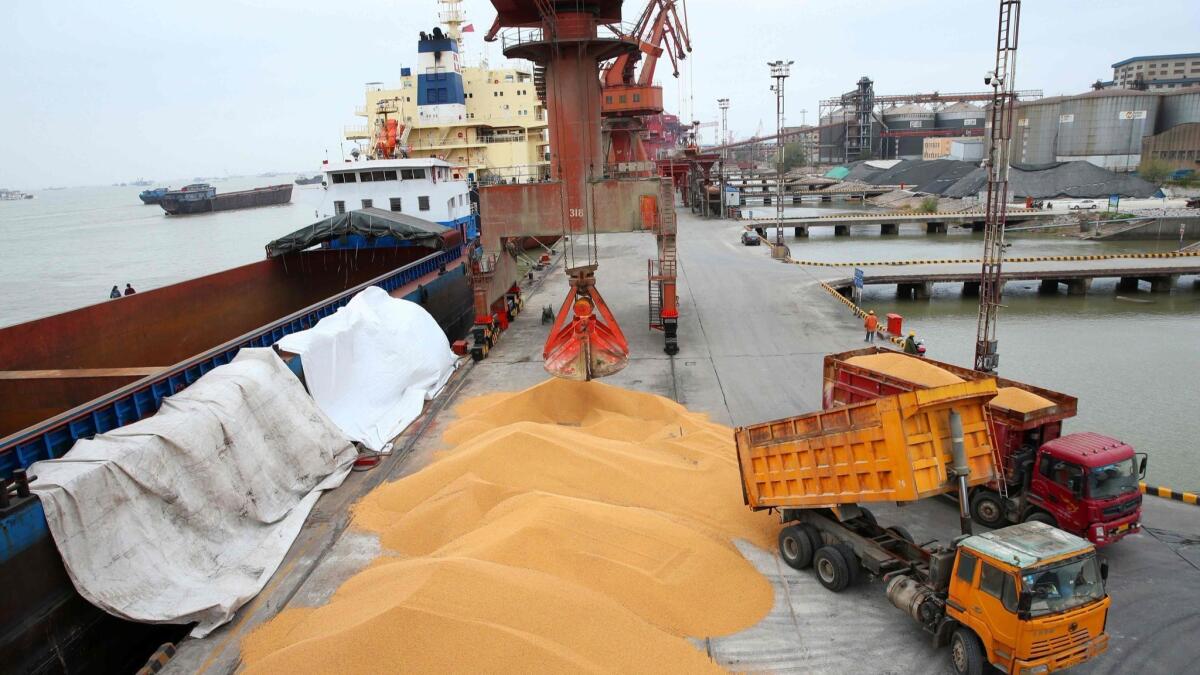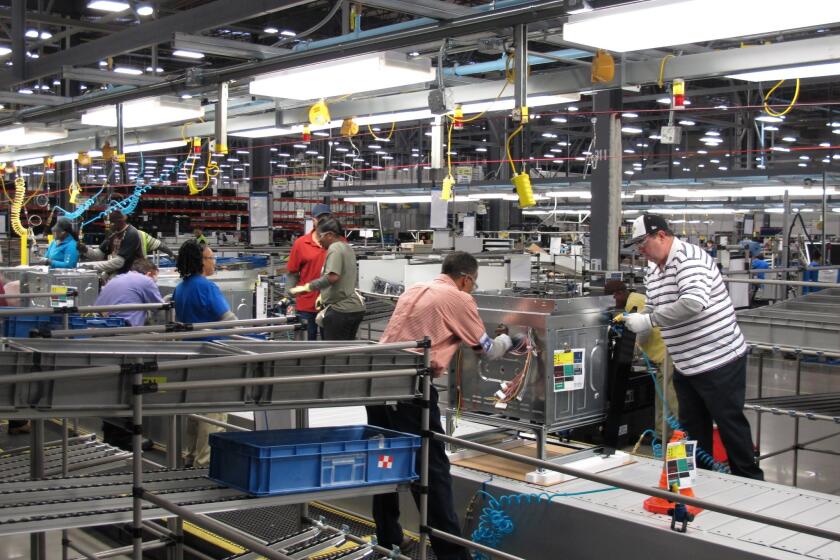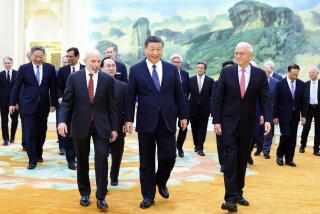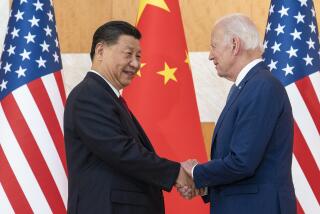Trump sees no need for a preelection trade deal, as China cancels its farm tour

President Trump said he did not need to secure a deal with China to end the trade war before the 2020 election and stressed that he wanted a comprehensive pact and would not settle for a narrow agreement.
“We’re looking for a complete deal. I’m not looking for a partial deal,” Trump said, rejecting suggestions that he needed an agreement for his reelection campaign.
“I don’t think I need it before the election. I think people know that we’re doing a great job,” the president said at a joint news conference Friday with Australian Prime Minister Scott Morrison.
But in a sign of possible turbulence, a Chinese delegation canceled trips to Montana and Nebraska starting this weekend and into next week for discussions with the farming communities there. A spokeswoman for the Nebraska Department of Agriculture confirmed that China had scrapped the visit to her state but said she would defer any questions about the reason for the decision to Chinese officials.
Trump’s comments came as U.S. and Chinese officials continued to hold meetings in Washington aimed at laying the groundwork for higher-level talks in early October that could ease the trade war between the economic powers.
California wineries were expanding into China’s big wine market. Trump’s trade war is destroying their plans.
Earlier this week, Trump said the two sides were close to striking a deal. But the president has frequently made optimistic comments about the state of the trade negotiations that have not been borne out.
U.S. officials have been considering freezing new tariffs and possibly removing some existing ones as long as China moves ahead with some large-scale purchases of American agricultural products.
Financial markets sold off on the renewed sense that Washington and Beijing were struggling to make progress to resolve the trade dispute, which has been ongoing for well over a year.
Stocks saw earlier gains evaporate on the cancellation news, with the S&P 500 index falling as much as 0.8% before paring some of its losses. Treasury bonds rallied sharply, with the yield on the benchmark 10-year note falling 3 basis points to 1.75%. The shorter-dated two-year bill saw its yield slide 4.6 basis points to 1.64%.
Trump said Beijing had made some “very big” agricultural purchases this week but stressed that he would not accept a narrow deal — which would focus on efforts to reduce the U.S. trade deficit with China but do less to compel the country to tackle problems related to intellectual property theft and market access reforms.
“China has been starting to buy our agricultural product,” Trump said. “But that’s not what I’m looking for. We’re looking for the big deal, we’ve taken it to this level.”
In a sign that the U.S. was willing to ease some pressure from the trade conflict, it exempted 400 Chinese imports from its tariffs Friday.
The latest figures on U.S. manufacturing are devastatingly bad. Blame Trump.
Critics are concerned that the deal being contemplated, while potentially pausing the trade war, would fall far short of the comprehensive agreement that was debated and rejected between the U.S. and China in May. This has caused many analysts to warn that the smaller interim deal may never happen.
On Friday, a top Senate Democrat urged Trump to reject any deal that did not address the bigger points of contention between the countries, such as intellectual property.
“My hope is that the president … won’t back down just for some commitment to buy a couple of shiploads of soybeans, but that we will get something enforceable around IP theft,” Sen. Chris Coons (D-Del.) told CNBC television.
Trump later suggested that securing a trade deal with China might help his reelection prospects, but he said it was not crucial because the American people appreciated his efforts to build the military and a strong economy.
“It’s been really amazing what we’ve been able to do. I think the voters understand that I don’t think it has any impact on the election,” he said. “Now, if something happened, I think that would probably be positive for the election, but that’s OK.”
© The Financial Times Ltd. 2019. All Rights Reserved. FT and Financial Times are trademarks of the Financial Times Ltd. Not to be redistributed, copied or modified in any way.






